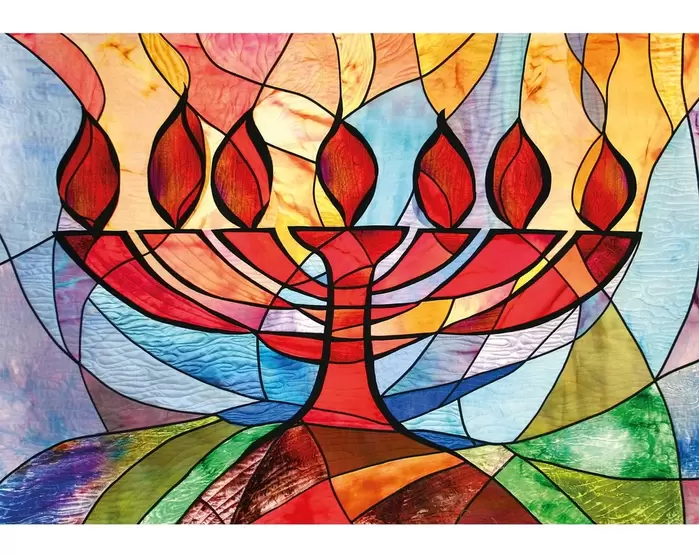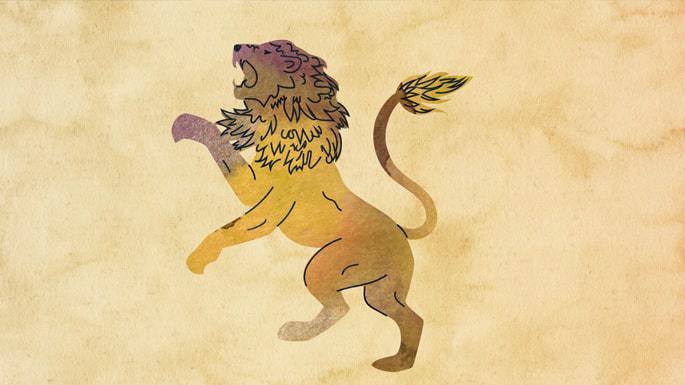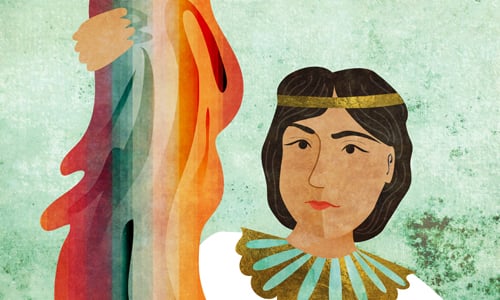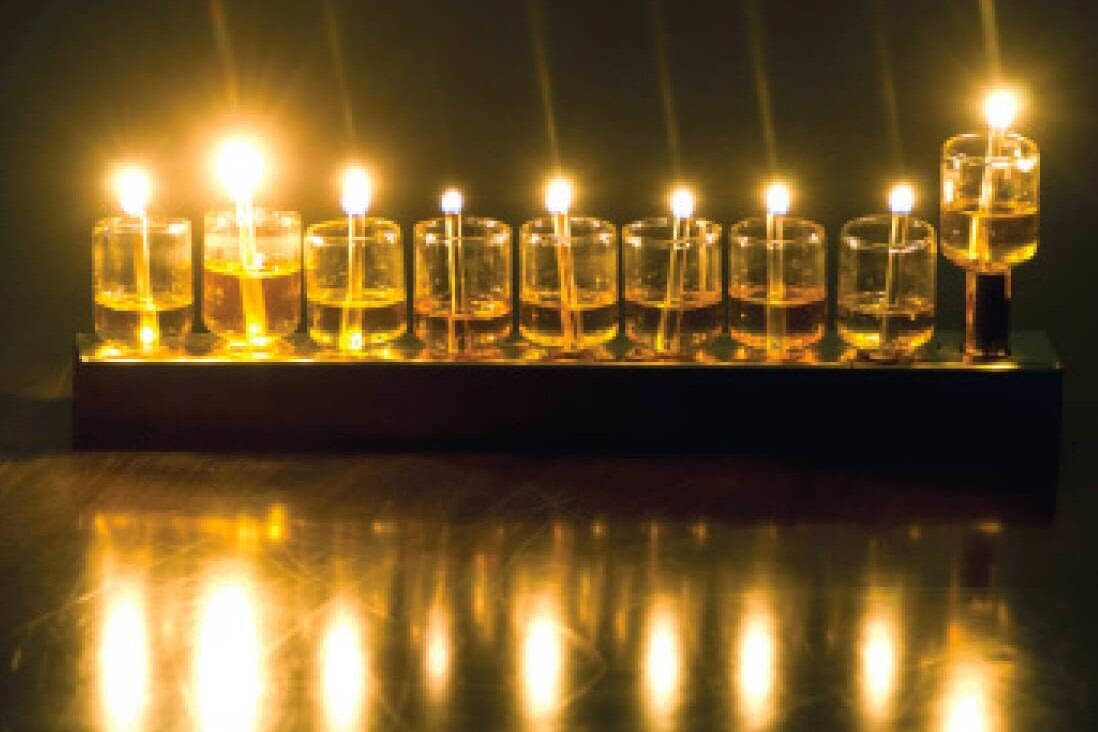 Courtesy Wentworth Wooden Puzzles Rabbi David Etengoff ה' יעזור וירחם על אחינו, כל בני ישראל בארץ ישראל ובכל חלקי הארץ Our parasha begins with the famous words: “And these are the names of b’nai Yisrael who came to Egypt, with Ya’akov, each man and his household came.” (Sefer Shemot 1:1, all Tanach and Rashi translations, The Judaica Press Complete Tanach) In his Commentary on the Torah, Rashi (1040-1105) offers this interpretation of our pasuk based on Midrash Shemot Rabbah, 1:3: Although [Hashem] counted them in their lifetime by their names [Sefer Bereishit 46:8-27], He counted them again after their death, to let us know how precious they are (l’hodiyah chibatan), because they were likened to the stars, which He takes out [from beyond the horizon] and brings in by number and by name, as it is said: “Who takes out their host by number; all of them He calls by name.” (Sefer Yeshayahu 40:26). The expression, “l’hodiyah chibatan,” is not found in the midrash; as such, it is Rashi’s original contribution to understanding our verse. The Sefat Emet (Rav Yehudah Aryeh Leib Alter, 1847-1905) expands on Rashi’s chidush in the following manner: “L’hodiyah is a special message regarding our unique purpose in this world, namely, that we are symbolically like the stars. Just like the role of the stars is to shed light within the darkness of the night, so, too, it is our task and mission to shed light upon the darkness of the world.” (Itturei Torah, Sefer Shemot, page 8, translation my own) The Sefat Emet’s analysis is reminiscent of three pasukim in Sefer Yeshayahu that depict our unique role as Hashem’s or lagoyim (light unto the nations): I am Hashem; I called you with righteousness and I will strengthen your hand; and I formed you, and I made you for a people’s covenant, for a light to nations. (42:6) And He [Hashem] said…I will make you a light of nations, so that My salvation shall be until the end of the earth.” (49:6) And nations shall go by your light and kings by the brilliance of your shine. (60:3) At first glance, one might think that Yeshayahu is the originator of the concept or lagoyim. HaRav Herschel Schachter shlita explains that this is not the case; rather, its roots are found in Sefer Devarim 28:10: The Navi Yishayahu says that we are an Or LaGoyim, “A light unto the nations” (Yishayahu 49:6). But our role as a “light unto the nations” was not discovered by Yishayahu, for all the teachings brought forth by the prophets must be rooted in the Torah. The original source for our people’s role as “light unto the nations” comes from the verse, “Then all the peoples of the earth will see that Hashem’s name is called upon you.” (This and the following quote, https://mizrachi.org/hamizrachi/our-light-unto-the-nations/) The phrase, “or lagoyim,” is often used, but little understood. Fortunately, Rav Schachter addresses this problem: “What does it mean to be a ‘light unto the nations?’ When all the nations of the world will see that we have succeeded in preserving our tzelem Elokim [image of the Almighty], they will learn from our people how to live with yirat shamayim—with fear of Heaven.” With Hashem’s help, and our dedication to all that is right and good, may the nations of the world soon recognize that His holy name is upon us, as we shed light upon the darkness, and bring all humankind close to Him. V’chane yihi ratzon. Shabbat Shalom Past drashot may be found at my blog-website: http://reparashathashavuah.org Please contact me at [email protected] to be added to my weekly email list. *** My audio shiurim on the topics of Tefilah and Tanach may be found at: http://tinyurl.com/8hsdpyd *** I have posted 164 of Rabbi Soloveitchik’s English language audio shiurim (MP3 format) spanning the years 1958-1984. Please click on the highlighted link: The Rav
0 Comments
 Rabbi David Etengoff ה' יעזור וירחם על אחינו, כל בני ישראל בארץ ישראל ובכל חלקי הארץ The concluding pasukim of our parasha present Yosef’s final words to his brothers. They contain both a reminder of Hashem’s promise to ultimately redeem the Jewish people from Egypt, and Yosef’s poignant personal request: Yosef said to his brothers, “I am going to die; G-d will surely remember you and take you up out of this land to the land that He swore to Avraham, to Yitzchak, and to Ya’akov.” And Yosef adjured the children of Israel, saying, “G-d will surely remember you, and you shall take up my bones out of here.” (This and all Bible and Rashi translations, The Judaica Press Complete Tanach) These verses reveal the depth of Yosef’s abiding faith in Hashem when he twice declares, “G-d will surely remember you.” Within this context, he placed a shavuah upon his brothers and their descendants to transport his bones with them in the course of the promised redemption and bury him in Israel. In so doing, he emulated his father, Ya’akov Avinu, who insisted Yosef take a shavuah stating that he would not bury him in Egypt, but rather with his forebears in Israel. (Sefer Bereishit 47: 29-31) A straightforward reading of our passage indicates that the obligation to transport Yosef’s bones from Egypt and bury him in Israel was incumbent upon the entire Jewish people. When the Exodus takes place, Sefer Shemot 13:19 tells us that Moshe, as the representative of the entire Jewish people, gathered up Yosef’s remains and began the long process of reinterring him in Israel: “Moshe took Yosef’s bones with him, for he [Yosef] had adjured the sons of Israel, saying, ‘G-d will surely remember you, and you shall bring up my bones from here with you.’” Basing itself on this pasuk, the first chapter of Mishnah Sotah (7 and 9) teaches us a crucial lesson regarding how our present behaviors determine the way we will be treated by others in the future: According to the manner in which a person acts, others will act toward him… This [general rule] is in effect when it comes to matters of a positive nature as well…Yosef merited the right to bury his father [Ya’akov], and there was no one among his brothers who was greater than he. As the Torah states: “So Yosef went up to bury his father…And chariots and horsemen also went up with him, and the camp was very numerous.” (Sefer Bereishit 50: 7, 9). Our passage continues and informs us that Yosef was worthy of the greatest possible respect. As such, it was fitting that Moshe Rabbeinu would be involved in his burial in the Land of Israel: Whom do we have that deserved to be buried with greater respect than Yosef? Therefore, the only one who could possibly render him the proper respect was Moshe. Moshe merited the right to bury Yosef, and there was no one among his brothers who was greater than he. As the Torah states: “Moshe took Yosef’s bones with him.” (Mishnah translation my own) The operating principle in this mishnaic passage is the well-known concept of middah k’neged middah--according to the manner in which a person acts, G-d and man will act toward him. We are fortunate that the Torah provides us with a clear metric for analyzing our actions, namely, “v’halachta b’drachov” (“And you should walk in His path,” Sefer Devarim 28:9). This commandment is elucidated in a celebrated passage in Talmud Bavli, Sotah 14a: Just as Hashem clothed the naked [in the case of Adam and Chava] … so, too, should you clothe the naked. Just as Hashem visited the sick [in the case of Avraham after his brit milah] …so, too, should you visit the sick. Just as the Holy One Blessed be He comforted the mourners [in the case of Yitzhak after Avraham’s passing] …so, too, should you comfort the mourners. Just as the Holy One Blessed be He buried the dead [in the case of Moshe] …so, too, should you bury the dead. (Translation, my own) Stated quite simply, our goal is to emulate the Almighty’s actions in each of our deeds. As my rebbi and mentor Rabbi Yosef B. Soloveitchik (1903-1993) noted on many occasions, halachta b’drachov emerges as the fundamental underpinning of Judaism’s ethical structure. By emulating the actions of the Holy One blessed be He, we create substantive changes in ourselves, and positively impact those with whom we interact. In this sense, we become partners with Hashem in creating the world − shutfim im Hashem b’ma’aseh Bereishit. With Hashem’s help, may we be zocheh to fulfill the mitzvah of halachta b’drachov in its most profound sense. Then may we become shutfim im Hashem b’ma’aseh Bereishit, to make the world a better and nobler place, and may the middah k’neged middah we receive be replete with zechuyot (merits). V’chane yihi ratzon. Shabbat Shalom Past drashot may be found at my blog-website: http://reparashathashavuah.org Please contact me at [email protected] to be added to my weekly email list. *** My audio shiurim on the topics of Tefilah and Tanach may be found at: http://tinyurl.com/8hsdpyd *** I have posted 164 of Rabbi Soloveitchik’s English language audio shiurim (MP3 format) spanning the years 1958-1984. Please click on the highlighted link: The Rav  Rabbi David Etengoff ה' יעזור וירחם על אחינו, כל בני ישראל בארץ ישראל ובכל חלקי הארץ Our Sages, in Tosefta Berachot 4:17-18, ask a fundamental question: “Why did Yehudah merit kingship?” After all, each of the brothers was great in his own way; why, then, was Yehudah and his tribe permanently given the mantel of leadership? One answer offered by the Tosefta is, “Because of his humility (anavah).” This is demonstrated in Sefer Bereishit 44:18, 32-33, wherein Yehudah calls himself a “servant” no less than four times, and even offers to become Yosef’s slave—all in an effort to save Benyamin from servitude: Then Yehudah approached him [Yosef] and said, “Please, my lord, let now your servant speak something into my lord’s ears, and let not your wrath be kindled against your servant, for you are like Pharaoh. For your servant assumed responsibility for the boy, from my father, saying, ‘If I do not bring him to you, I will have sinned against my father forever.’ So now, please let your servant stay instead of the boy as a slave to my lord, and may the boy go up with his brothers.” (This, and all Tanach translations, The Judaica Press Complete Tanach) Midrash Bamidbar Rabbah 13:3 focuses upon Yehudah’s anavah, and declares this to be the rationale for his tribe’s subsequent position of glory and honor: Rabbi Berechyah the Kohan, the son of Rabi, said in the name of Rabbi Levi: “The Holy One Blessed be He said: ‘Yehudah, since you have lowered yourself before your younger brother [in order to rescue him from slavery], when the Mishkan (portable Sanctuary in the desert) will be erected and all of the tribes will come to offer [sacrifices], there will be no tribe that will offer before you. Rather, they will all demonstrate respect before you and you will have [the honor] of being the first to bring [the sacrifices].’ Therefore, the Torah states: ‘And the one [of the tribal princes] who brought sacrifices on the first day… from the tribe of Yehudah…’” (Translation and brackets my own) We live in an age wherein arrogance (ga’avah) is the rule, and humility is the exception. In truth, the single greatest barrier to authentic anavah is ga’avah, since it blinds us to the consequences of our actions and beguiles us into believing we are superior to others. As such, the Ramban (1194-1270), in his famous Iggeret HaRamban, warns us against this negative middah: “And now, my son, understand and observe that whoever feels that he is greater than others is rebelling against the Kingship of Hashem, because he is adorning himself with His garments, as it is written, ‘Hashem reigns, He wears clothes of pride.’” (Sefer Tehillim 93:1). Next, the Ramban notes that whether it is wealth, honor, or wisdom—everything is a gift from the Almighty: Why should one feel proud? Is it because of wealth? Hashem makes one poor or rich (Sefer Shmuel I:2:7). Is it because of honor? It belongs to Hashem, as we read, “Wealth and honor come from You.” (Divrei Hayamim I:29:12) So how could one adorn himself with Hashem's honor? And one who is proud of his wisdom surely knows that Hashem “takes away the speech of assured men and reasoning from the sages.” (Sefer Iyov 12:20) So we see that everyone is the same before Hashem, since with His anger He lowers the proud and when He wishes He raises the low. (Translation, http://www.pirchei.co.il/specials/ramban/ramban.htm) Herein the Ramban is teaching us that greatness comes from God, and God alone. How, then, can we avoid the pitfalls of ga’avah, and, like Yehudah, live lives infused with anavah? Fortunately, the Ramban addresses this question: In all your actions, words, and thoughts, always regard yourself as standing before Hashem, with His Schechinah [Divine Presence] above you, for His glory fills the whole world. Speak with fear and awe, as a slave standing before his master. Act with restraint in front of everyone. When someone calls you, don’t answer loudly, but gently and softly, as one who stands before his master. In short, when we truly feel ourselves to be in God’s presence, we naturally act with humility before Him—and with restraint and dignity toward others. In my estimation, Yehudah had a powerful sense of the Almighty’s presence in his life, and very often felt the gentle “touch” of the Schechinah upon his shoulder. Accordingly, anavah came naturally to him. Little wonder, then, that his descendant and future king of Israel, Dovid HaMelech would one day proclaim to the world: “Sheviti Hashem l’negdi tamid!” (“I have placed Hashem before me constantly…,” Sefer Tehillim 16:8) With Hashem’s help, may we try to emulate Yehudah and recognize the Almighty’s unceasing presence in our lives, so that we, too, may reject ga’avah, embrace anavah, and act with abiding respect toward each other. V’chane yihi ratzon. Shabbat Shalom Past drashot may be found at my blog-website: http://reparashathashavuah.org Please contact me at [email protected] to be added to my weekly email list. *** My audio shiurim on the topics of Tefilah and Tanach may be found at: http://tinyurl.com/8hsdpyd *** I have posted 164 of Rabbi Soloveitchik’s English language audio shiurim (MP3 format) spanning the years 1958-1984. Please click on the highlighted link: The Rav  Rabbi David Etengoff ה' יעזור וירחם על אחינו, כל בני ישראל בארץ ישראל ובכל חלקי הארץ Parashat Vayeshev concludes with the story of Yosef’s imprisonment in an Egyptian dungeon as a result of Potiphar’s wife’s false accusations. While incarcerated, Yosef rises to the top of the prison hierarchy, and analyzes the dreams of two fellow prisoners: Pharaoh’s chief baker and chief cupbearer. Drawing on his ruach hakodesh, Yosef reveals to the chief cupbearer that he will return to his former position of honor. Yosef then asks him: “But remember me (zikartani) when things go well with you, and please do me a favor and mention me (v’hizkartani) to Pharaoh, and you will get me out of this house.” (Sefer Bereishit 40:14, this, and all Bible translations, The Judaica Press complete Tanach) Yosef’s strategy seems sound, yet this is how matters actually played out: “[Pharaoh] restored the chief cupbearer to his [position as] cupbearer, and he placed the cup on Pharaoh’s palm…But the chief cupbearer did not remember Yosef, and he forgot him.” (40:21, 23) When we fast forward to this week’s parasha, we are informed that Pharoah had a series of disturbing dreams that Pharaoh’s wise men failed to accurately interpret. This glaring issue jogs the chief cupbearer’s memory, and he brings news of Yosef’s abilities to Pharoah. Not too surprisingly, the befuddled monarch quickly takes advantage of this new-found opportunity: So, Pharaoh sent and called Yosef, and they rushed him from the dungeon, and he shaved and changed his clothes, and he came to Pharaoh. And Pharaoh said to Yosef, “I have dreamed a dream, and there is no interpreter for it, but I have heard it said of you [that] you understand a dream, to interpret it.” And Yosef replied to Pharaoh, saying, “Not I; the Almighty will give an answer [that will bring] peace to Pharaoh.” (Sefer Bereishit 41:14-16) To be clear, Yosef was summoned from his dungeon of despair and brought before Pharaoh, the most powerful man on the planet. Almost immediately, Pharoah told him that he heard he was capable of accurately interpreting dreams. Let us step back for a moment and imagine how many of us would have responded to such a powerful ruler. Assuming that we had Yosef’s talent, most of us probably would have said some variation of the following: “Yes, I can interpret dreams very well. In fact, your majesty, I haven’t been wrong yet! I do have an amazing gift that is now at your service. What did Pharaoh dream? Allow me to interpret the dream’s meaning.” Yosef, however, chose a very different approach and, in so doing, took the final step toward becoming Yosef HaTzadik: “Bil’adai, Elokim ya’aneh et shalom Pharaoh” (“It is not through my wisdom [Onkelos] that I shall interpret your dreams, Elokim will provide an answer that will bring peace to Pharaoh”). The singular import of these six Hebrew words cannot be overestimated. They began a chain of events that established Yosef as the key figure who enabled the Jewish people to initially thrive in Egypt, and subsequently survive the Egyptian exile. Why does the phrase, “Bil’adai, Elokim ya’aneh et shalom Pharaoh,” have such marked power? In his Commentary on the Torah, the Malbim (Rabbi Meir Leibush ben Yechiel Michel, 1809-1879), suggests this interpretation: [When Yosef declared this phrase, he was actually telling the king that] the dream was a communication of Divine Providence from Hashem. Moreover, just as Hashem sent you [Pharaoh] this communication to make known to you your peace [that is, your future] … so, too, will He make known its interpretation to the dream analyst no matter who he may be. In addition, even if the [interpretation] of this [Heavenly] message will not come from me, nonetheless, others will be able to interpret it, for even without me, certainly Elokim, Himself, will provide an answer to Pharaoh that will bring you peace… (Translation, underlining and brackets my own) A careful reading of the Malbim’s words leads to an inescapable and seemingly counterintuitive conclusion: Yosef achieved his ultimate greatness by removing any thought of self-aggrandizement completely “off the table.” Instead, he declared that everything that takes place is solely dependent upon the infinite Almighty, rather than upon any finite individual. This message, especially in our day and age, is one that we surely must ponder. May we strive to be like Yosef Hatzadik and ever recognize that Hashem, not humanknd, runs the world. As Dovid HaMelech proclaimed so long ago: “M‘ate Hashem hiyitah zot he niflot b’aineynu--This was from Hashem; it is wondrous in our eyes.” (Sefer Tehillim 118:23). V’chane yihi ratzon. Shabbat Shalom Past drashot may be found at my blog-website: http://reparashathashavuah.org Please contact me at [email protected] to be added to my weekly email list. *** My audio shiurim on the topics of Tefilah and Tanach may be found at: http://tinyurl.com/8hsdpyd *** I have posted 164 of Rabbi Soloveitchik’s English language audio shiurim (MP3 format) spanning the years 1958-1984. Please click on the highlighted link: The Rav  Rabbi David Etengoff ה' יעזור וירחם על אחינו, כל בני ישראל בארץ ישראל ובכל חלקי הארץ Hanukkah and Purim, the two rabbinically based chagim of the Jewish calendar, are joyous days of celebration and giving thanks to Hashem. My rebbe and mentor, Rabbi Joseph B. Soloveitchik zatzal (1903-1993), known as “the Rav” by his students and followers, described their similarities in the following manner: Purim and Hanukkah represent man’s active involvement. There is no prohibition of work. God chose Mordechai, Esther, and the Maccabees not as onlookers but as actors. He demanded from them sacrificial, heroic action. He told them to plan the strategy and execute it. Man is the fulfiller of God’s will. Hence, when triumph was achieved, God willed man to celebrate a day of love and sympathy, a day of sharing and togetherness. Hanukkah and Purim revolve around the merger of the individual with the community, promoting an open, sympathetic existence. (All Rav Soloveitchik quotes are from Days of Deliverance: Essays on Purim and Hanukkah, Eli D. Clark, Joel B. Wolowelsky and Reuven Ziegler editors, pages 121-124, brackets my own) The Rav’s understanding of the parallels that obtain between Hanukkah and Purim stresses that Mordechai, Esther, and the Maccabees were active agents in the salvation of the Jewish people. They engaged in “sacrificial heroic action” based upon their personally conceived strategies and chosen modes of deployment. In this way, they fulfilled Hashem’s will, and “… when triumph was achieved, G-d willed man to celebrate a day of love and sympathy, a day of sharing and togetherness.” If we carefully examine the Al Ha-Nissim prayer of the siddur that is recited on both Hanukkah and Purim, however, we immediately find a number of significant disparities regarding their form and content. For example, the text of Hanukkah’s Al Ha-Nissim is 92 words in length, whereas Purim’s is a mere 52 words. Perhaps, the most direct way to understand this difference is to highlight the essential purpose of the prayer, namely, to tell the stories of Hanukkah and Purim. We must remember that Purim has its own sefer, namely, Megillat Esther that is included in Tanach, wherein its events are extensively narrated over the course of 10 chapters. As such, it does not need an elaborately articulated Al Ha-Nissim. Hanukkah’s chronicle, however, is not found anywhere in Tanach; as such, its “megillah” is none other than its extensive Al Ha-Nissim formulation. Rav Soloveitchik focuses on another conceptual difference that obtains between Hanukkah and Purim as illustrated in the Al Ha-Nissim: If you compare the Al ha-nissim that we recite on Purim with the Al ha-nissim we recite on Hanukkah, you will find an important distinction. In the Al ha-nissim of Purim, there is nothing mentioned of Mordechai and Esther’s role in the unfolding of the dramatic events about which the Megillah tells us. We know from the Megillah that Mordechai took the initiative and Esther was ready to sacrifice herself. But in the Al ha-nissim, the names of Mordechai and Esther are mentioned only as an indication of the period during which the events transpired: “In the days of Mordechai and Esther.” It should have said: “And Mordechai cried out, and Esther entered the chamber of the king.” (4:1; 5:1) Herein, the Rav underscores the role of Mordechai and Esther as historical markers instead of historical actors. In fact, Purim’s Al Ha-Nissim completely de-emphasizes the singular import that human intervention played in bringing about the deliverance of the Jewish people at this moment in history. As the Rav suggests, “Though the Megillah depicts the human role and human action, these are completely ignored in the Al ha-nissim of Purim.” Thus, we find in Purim’s Al Ha-Nissim: “But You [Hashem], in your abundant mercy, nullified his counsel [that is, Haman’s] and frustrated his intention and caused his design to return upon his own head, and they hanged him and his sons on the gallows.” The Rav points out that the situation is entirely reversed when we read the Al Ha-Nissim for Hanukkah, wherein the Maccabees’ instrumental role is the point of focus: You delivered the strong into the hands of the weak, the many into the hands of the few, the impure into the hands of the pure, the wicked into the hands of the righteous, and the wanton into the hands of the diligent students of Your Torah…Thereafter Your children came into the shrine of Your house, cleansed Your Temple, purified Your sanctuary, kindled the lights in the courts of Your holiness… Rav Soloveitchik buttresses this line of reasoning by reminding us of the prominent role given the Maccabees in the Ha-Nerot Hallalu prayer recited after lighting the chanukiyah (menorah): “… [the] miracles and wonders that You performed for our forefathers, by means of Your holy priests [that is, the Maccabees].” The Rambam (1135-1204) echoes this prayer’s text in his Mishneh Torah, Hilchot Hanukkah when he states: “The children of the Hasmonean High Priests overpowered them [the Syrian-Green legions], and killed them, and saved Israel from them.” (3:1) In sum, each of these Hanukkah sources emphasize the Jewish people’s role in achieving victory, whereas, as we have seen, in the case of Purim, the deliverance from evil is attributed solely to the Almighty. What is the underlying reason for this glaring difference between Purim and Hanukkah? Once again, the Rav offers his illuminating insights: We learn from this that when the fight is spiritual, G-d invites the Jew to participate. When spiritual survival is at stake, man must take the initiative. Even though man is under the guidance of the Almighty, man takes the initiative, and therefore his role is recorded… Antiochus was interested in destroying the Jews spiritually. When the menace is of a spiritual nature, then the initiative belongs to man. Man engages in the struggle for spiritual survival. For this reason, the Hasmoneans took the initiative, and we remember their efforts when we commemorate their victory on Hanukkah. In stark contrast, however: When it is only a question of physical struggle [as in the case of Purim wherein Haman’s goal was to murder our people,] G-d acts differently. When there is a physical menace or the threat of physical destruction, G-d uses the human hand as an instrument of His will. He recruits man. He uses human energy, human resources, to implement the plan that He has devised. But Judaism has said that in this case, the man who is the messenger of G-d should not be credited with the salvation… On Purim we celebrate a physical victory. [Therefore,] in the liturgy we make no mention of Mordechai and Esther’s deeds because, if the achievements are in the realm of military conquest and of material nature, victory should be attributed to the Almighty. As different as Purim and Hanukkah are from one another, we must never forget one essential parallel: Just as the Maccabees took the spiritual initiative and rekindled the lights of the Menorah in the Beit HaMikdash so, too, did Hashem bring light to our people on Purim to commemorate the physical salvation He undertook on our behalf. As Megillat Esther so powerfully attests: “The Jews had light and joy, and gladness and honor.” (Megillat Esther 8:16, translation, The Judaica Press Complete Tanach) Shabbat Shalom and Chanukkah Sameach! Past drashot may be found at my blog-website: http://reparashathashavuah.org Please contact me at [email protected] to be added to my weekly email list. *** My audio shiurim on the topics of Tefilah and Tanach may be found at: http://tinyurl.com/8hsdpyd *** I have posted 164 of Rabbi Soloveitchik’s English language audio shiurim (MP3 format) spanning the years 1958-1984. Please click on the highlighted link: The Rav |
Details
Archives
July 2024
AuthorTalmid of Rabbi Soloveitchik zatzal Categories |
- Blog: Rabbi David Etengoff: Parashat HaShavuah
- Sefer Bereishit 5784&5785
- Sefer Shemot 5784&5785
- Sefer Vayikra 5784&5785
- Sefer Bamidbar 5784 &5785
- Sefer Bereishit 5782&5783
- Sefer Shemot 5782&5783
- Sefer Vayikra 5782&5783
- Sefer Bamidbar 5782&5783
- Sefer Devarim 5782&5783
- Sefer Bereishit 5780& 5781
- Sefer Shemot 5780&5781
- Sefer Vayikra 5780&5781
- Sefer Bamidbar 578&5781
- Sefer Devarim 578&5781
- Sefer Bereishit 5778&5779
- Sefer Shemot 5778&5779
- Sefer Vayikra 5778&5779
- Sefer Bamidbar 5778&5779
- Sefer Devarim 5778&5779
- Sefer Bereishit 5776&5777
- Sefer Bereishit 5774&5775
- Sefer Bereishit 5772&5773
- Sefer Bereishit 5771&5770
- Sefer Shemot 5776&5777
- Sefer Shemot 5774&5775
- Sefer Shemot 5772&5773
- Sefer Shemot 5771&5770
- Sefer Vayikra 5776&5777
- Sefer Vayikra 5774&5775
- Sefer Vayikra 5772&5773
- Sefer Vayikra 5771&5770
- Sefer Bamidbar 5776&5777
- Sefer Bamidbar 5774&5775
- Sefer Bamidbar 5772&5773
- Sefer Bamidbar 5771&5770
- Sefer Devarim 5776&5777
- Sefer Devarim 5774&5775
- Sefer Devarim 5772&5773
- Sefer Devarim 5771&5770
 RSS Feed
RSS Feed
